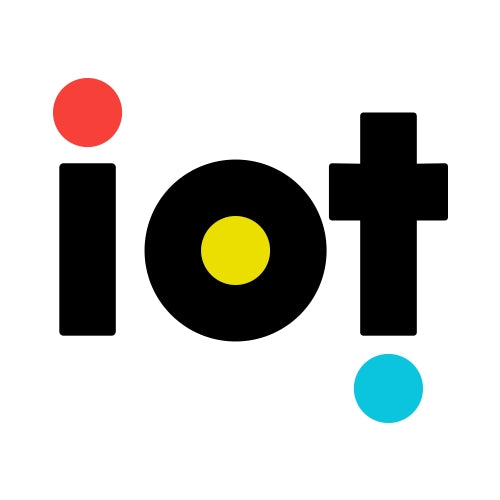Established in 2007
Connecting People, Protecting Communities, Powering the Future
What is The Internet of Things (IoT)
The Internet of Things (IoT) is the network of everyday physical sensors, devices connected to the internet, enabling them to collect and share data. This technology allows real time monitoring, automation, and decision making across homes, cities, industries, and critical infrastructure.
Who We Are
Since 2007, IoT has built a robust foundation in the Internet of Things, successfully connecting over 100,000 IoT services for businesses, enterprises, and government organisations. Our experience now drives our mission to deliver critical connectivity solutions that support vulnerable individuals, emergency services, and community infrastructure.
We are also a recognised supplier for the Gold Coast Regional Development Australia Industry 4.0 Hub(industry4.0.rdagoldcoast.org.au/businesses/the-internet-of-things), highlighting our role in advancing smart city technologies.
We work with industry experts and partners across Australia and around the globe, combining local knowledge with international innovation to deliver best-in-class IoT solutions.
Our Smart City Applications
We work closely with councils to implement a wide range of IoT-based smart city solutions, including:
-
IoT Upstream Flood Monitoring
An early warning system that monitors water levels at upstream locations such as creeks, catchments, and river inlets before they impact downstream communities. Using radar distance sensors, LoRa-WAN, NB-IoT, and satellite connectivity, the system delivers real-time data, camera verification, and predictive analytics to councils and emergency services, enabling proactive measures to prevent damage.
-
Infrastructure Management
Remote monitoring of bridges, public gates, and fencing for safety and maintenance.
-
Artificial Narrow Intelligence (ANI) in Camera Flood Monitoring
Our flood monitoring cameras use AI-driven algorithms trained for specific detection tasks such as identifying rising water levels, analysing water flow speed, and detecting debris movement. This targeted intelligence ensures rapid, accurate alerts by focusing on well-defined parameters, integrating seamlessly with other sensor data for a complete situational overview.
-
Flood and Environmental Monitoring
Integrated networks of water level sensors, rainfall gauges, soil moisture probes, and environmental quality monitors. These systems provide continuous data to predict flood events, manage water resources, and monitor environmental health, allowing councils and emergency services to respond faster and plan long-term resilience strategies.
-
Connectivity for Public Safety
Triple-redundant communication for emergency response via a triple-redundancy network (NB-IoT, LoRa-WAN, and satellite)
-
Environmental Monitoring
Soil moisture sensors, air quality monitoring, and water quality buoys to support sustainability.
These solutions help councils reduce risk, lower insurance premiums, and create safer, more resilient communities.
Our Story
In 2016, our director faced a life-changing diagnosis of Hydrocephalus, requiring brain surgery. This experience reshaped our purpose and inspired the development of assistive technologies that enhance cognitive function, independence, and safety—especially in regional and high-risk environments.
Today, as a Registered NDIS Provider (Registration ID: 4-JOQVYC6), we specialise in Assistive Technologies that integrate seamlessly into everyday care plans. Our flagship product, the NDIS Space Case, delivers 24/7 satellite-enabled emergency response and geofencing to protect participants in remote and unsupported areas.
Seamless, Global IoT Connectivity
We operate as an agnostic mobile carrier, partnering with 24 global telecom providers to ensure unparalleled connectivity worldwide. Our solutions combine LTE, Cat-M, Narrowband IoT, satellite, and LoRa-WAN connectivity with traditional SIM and eSIM options, providing unmatched flexibility and reliability.
In Australia, we leverage a Telstra-powered MVNO to deliver mobile services across the nation’s most reliable network, ensuring that our solutions are always connected when it matters most.
Our Mission
To achieve 100% global connectivity for life-saving IoT applications by 2027, empowering vulnerable individuals, supporting emergency response, and future-proofing communities through intelligent, connected infrastructure.
IoT (ABN 47644828044) operates as a reseller, leveraging Telstra's 5G, 4G, and 3G mobile networks and infrastructure to deliver mobile services across Australia.
© Copyright Telstra Corporation.

Water Quality Monitoring
A cutting-edge water quality monitoring buoy equipped with ultrasonic, pressure, pH, dissolved oxygen, and temperature sensors. Connected via a triple-redundancy network (NB-IoT, LoRa-WAN, and satellite), it provides real-time data for environmental protection, flood prediction, and aquaculture management.

Flood and Environmental Monitoring
Integrated networks of water level sensors, rainfall gauges, soil moisture probes, and environmental quality monitors. These systems provide continuous data to predict flood events, manage water resources, and monitor environmental health, allowing councils and emergency services to respond faster and plan long-term resilience strategies.

Flood monitoring upstream
An early warning system that monitors water levels at upstream locations such as creeks, catchments, and river inlets before they impact downstream communities. Using radar distance sensors, LoRa-WAN, NB-IoT, and satellite connectivity, the system delivers real-time data, camera verification, and predictive analytics to councils and emergency services, enabling proactive measures to prevent damage.

